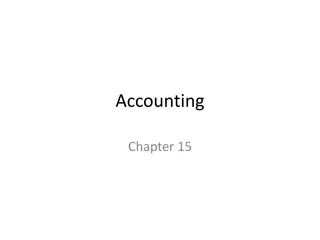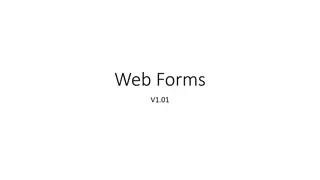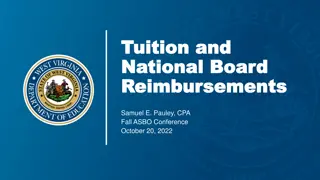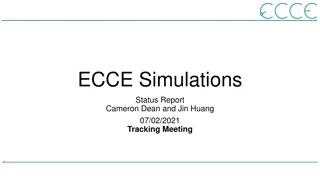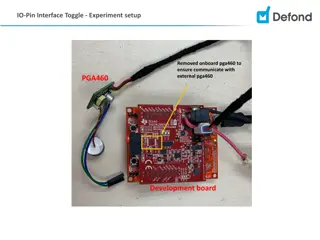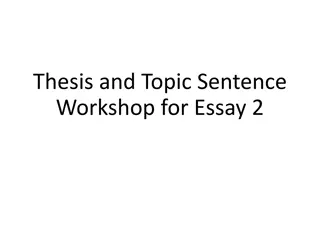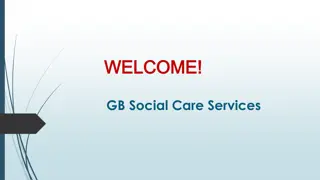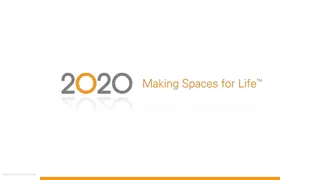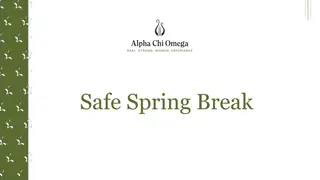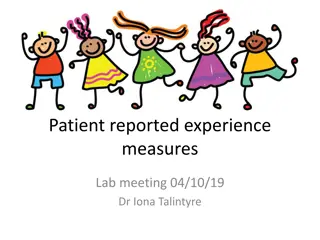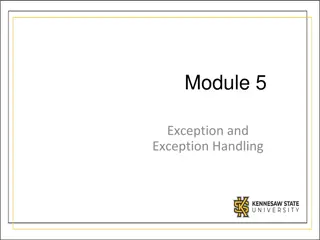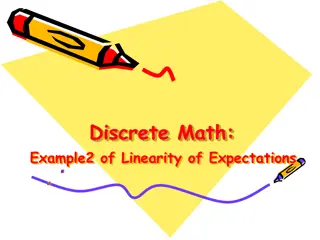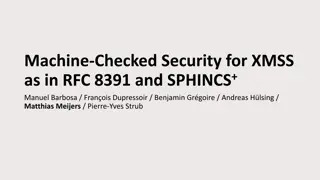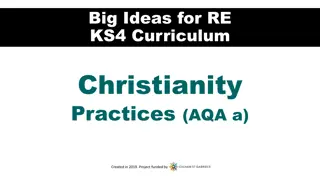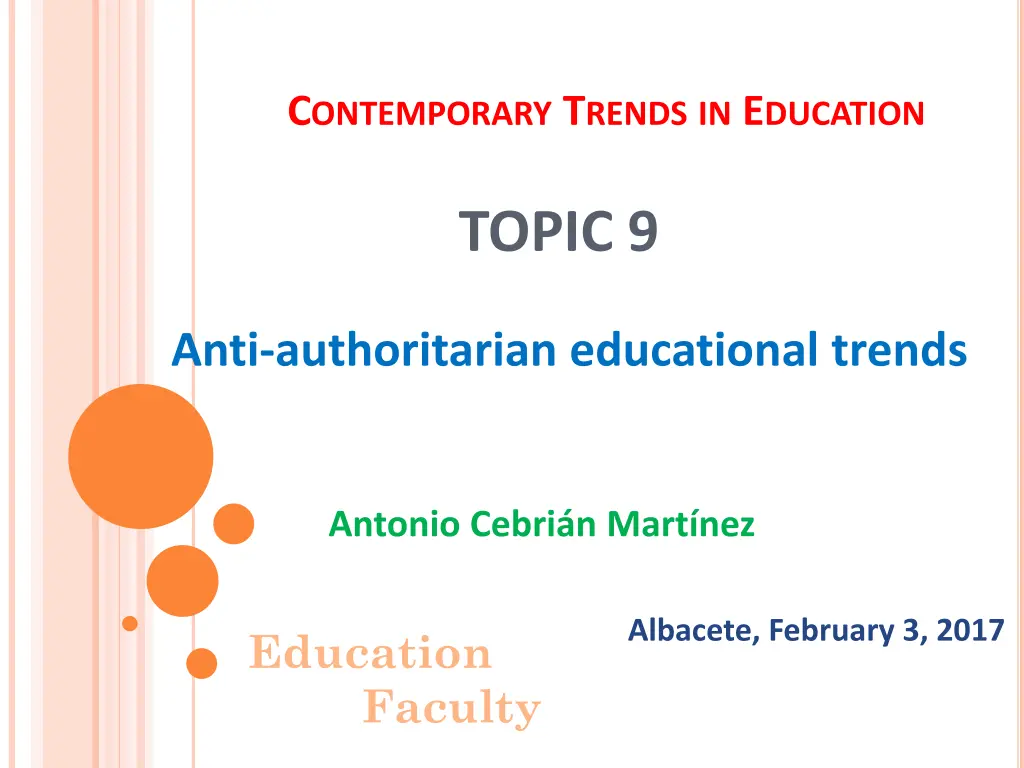
Pedagogies of Freedom in 20th Century Education
Explore the anti-authoritarian educational trends of the 20th century focusing on freedom, libertarian pedagogy, and self-managed schooling. Learn about movements like Summerhill and Freinet that prioritize individual and collective freedom over traditional authority in education.
Download Presentation

Please find below an Image/Link to download the presentation.
The content on the website is provided AS IS for your information and personal use only. It may not be sold, licensed, or shared on other websites without obtaining consent from the author. If you encounter any issues during the download, it is possible that the publisher has removed the file from their server.
You are allowed to download the files provided on this website for personal or commercial use, subject to the condition that they are used lawfully. All files are the property of their respective owners.
The content on the website is provided AS IS for your information and personal use only. It may not be sold, licensed, or shared on other websites without obtaining consent from the author.
E N D
Presentation Transcript
CONTEMPORARY TRENDS IN EDUCATION TOPIC 9 Anti-authoritarian educational trends Antonio Cebri n Mart nez Albacete, February 3, 2017 Education Faculty
OVERVIEW 1. Introduction: The pedagogies of liberty in the 20th Century 2. Summerhill or freedom as self- regulation 3. Freedom through cooperation in the Freinet movement 4. Freedom through self-management in Institutional Pedagogy
1. INTRODUCTION: THE PEDAGOGIES OF FREEDOM IN THE 20TH CENTURY Educational tendencies that take freedom as the driving force behind their theoretical reflections and their institutional practice Rejection of any authority over the student Purpose of education: to exercise responsible and conscientious individual and collective freedom, disappearing structures of power Different terminologies: Libertarian pedagogy Self-managed pedagogy Movement of free schools Pedagogical renewal movements Second- generation New School Alternative schools
1. INTRODUCTION: THE PEDAGOGIES OF FREEDOM IN THE 20TH CENTURY Two moments of the greatest expansion: Interwar years between the First and Second World War. Influences: Educational application of Freud's Psychoanalytic Theory Pedagogy of the New School Political-ideological reasons: utopian socialism, first pedagogical experiences initiated in Russia after the revolution of 1917 and libertarian education movement Freedom and respect for the child's personality with a non- Free education was separate from government and was not at the service of the capital and the elites to perpetuate the social order compulsory curriculum, in which each student chooses the contents that they want to study but always to achieve a common educational purpose, free men who respect the freedom of others
1. INTRODUCTION: THE PEDAGOGIES OF FREEDOM IN THE 20TH CENTURY 1960s Influences: Cultural and political movements that rejected authority and repressive norms Utopian Socialism of the 19th Century and the Anarchism of the First Third of the 20th Century New psychoanalytic approaches (Marcuse) Criticism of dogmatic attitudes, old ideologies, traditional conventions and capitalist, industrial and consumer society Cultural revolution in which the imagination serves to express and create the artistic and creative manifestations of man
1. INTRODUCTION: THE PEDAGOGIES OF FREEDOM IN THE 20TH CENTURY Education as a powerful instrument of social change, abolishes relations of authority Summerhill and the Freinet movement as absolute benchmarks Introduction of the study of internal dynamics and power relations ("group dynamics", Lewin maximum representative) Group as a set of individualities, functions as an independent entity and autonomously and the behaviour of each subject is interpreted depending on the dynamic interactions that occur Everything exterior is separate to the group, does not distort its life, role of observer or adviser but never directs Democratic principle and questioning of the principle of authority Teacher as a member of the group Organization of the group is decided in assembly, decides the collective life
1. INTRODUCTION: THE PEDAGOGIES OF FREEDOM IN THE 20TH CENTURY Carl Rogers: non-directivity tendency and student-based teaching Student: protagonist of the learning process itself (critical sense, initiative, responsibility, autonomy and ability to solve problems) Teacher: facilitating role, characteristics (authenticity, acceptance and confidence in the student and empathic understanding) Relationship between educator and educating at the center of his pedagogical model
2. SUMMERHILL OR FREEDOM AS SELF-REGULATION Principles: Delete mandatory assessments to enable students to develop their own goals and sense of accomplishment Provide opportunities for children to develop at their own pace and interests Leave freedom of play, favoring the creative and imaginative as basic in the development of his childhood Encourage experimentation without adult intervention or prosecution Allow students to live in community, giving them freedom to participate and be able to change aspects of community life
2. SUMMERHILL OR FREEDOM AS SELF-REGULATION Creator: Neill It still works with the same base Created in the 1930s Search for development in community but adapting to each student individually Self-regulation: self-determination of the child as an individual from birth, in freedom Responding to biological needs allows satisfaction of the other needs Influences: Family experiences marked by authority Psychoanalysis Observation of self-governing experiences Own ideology: utopian socialism and political left Radical and international pacifism
2. SUMMERHILL OR FREEDOM AS SELF-REGULATION Purpose of education: pursuit of happiness and preparation for life Emotional release: leave the students in complete freedom Private lectures or lessons following Freudian psychotherapy before repressed impulses and emotions, all to "accelerate the adaptation to freedom" Belief in the child's natural goodness Sometimes associated with "anarchy": not compulsory to attend class, free choice between entering class or playing or offering expressive activities as an alternative to methodical intellectual formation Three phases in the integration of a student for the achievement of making decisions for themselves and to follow their own interests when they are left free to do so
2. SUMMERHILL OR FREEDOM AS SELF-REGULATION Self-government of students to form a democratic community Own books that include examples to meet norms Weekly General Assembly in which all members of the school participate and where the norms are approved Few issues left for the Director/Head Teacher Court with elected members to address allegations and apply penalties Minor issues resolved by ombudsmen or arbitrators elected by the community and acting as mediators One of the elements that has generated more controversy has been the academic efficiency
3. FREEDOM THROUGH COOPERATION IN THE FREINET MOVEMENT Student of Ferri re Criticized traditional schooling He collected ideas of the New School although he criticized it for being highly bourgeois, private, not adaptable to the public and with methods not developed since the practice Much of his principles come from the Blonskij School of Labor Political and union commitment that led him to put into practice ideas of the workers' movements (corporatism from the point of view of self-management) He was expelled from public education for his conflicts with parents and state authorities, and founded private schools for the poor The liberating and transformative power of education: social equality
3. FREEDOM THROUGH COOPERATION IN THE FREINET MOVEMENT His movement was called Modern School Two fundamental aspects: Management by users, including the teacher Harmonization of personal and social interests Promotion of individual values and initiatives Freedom of expression and integration in the environment Communication with other educational groups Cooperation Expression in practice of a pedagogical model Result of an experimental trial result of scientific research and of the own essay in the classroom Introduction of the printing press in the school Techniques: school newspaper, free text, inter-school correspondence, school trips, tokens, work plan, wall newspaper Cooperative Council within the classroom for decision making Pedagogical techniques
3. FREEDOM THROUGH COOPERATION IN THE FREINET MOVEMENT Idea of cooperation constitutes the central nucleus of Freinet pedagogy, constitution of co-operative teams of work Declaration of principles of 1968 constitutes the fundamental aspect of its philosophy In 1927, Spain was the first country to make itself known the ideas of Freinet, although the movement stopped during the Civil War and was revitalised from 1990 until the present
4. FREEDOM THROUGH SELF-ESTABLISHMENT IN INSTITUTIONAL PEDAGOGY Origin in the rupture of a group of teachers in Paris with the ideas of Freinet (years 50 of the 20thCentury) Why? Mechanism of his techniques that could not renew the school Low validity in urban suburbs or industrialized areas Prohibition to apply the method but was designed with the material Absence of internal dialogue within the movement The student should be more directly involved in decision-making in equality with the teacher Defense of children's freedom in the classroom, not as cooperation but as self-management They created the Group of Educational Techniques that sought to create an environment of freedom in the classroom, moving from the Freinet cooperative class to the self-managed class
4. FREEDOM THROUGH SELF-ESTABLISHMENT IN INSTITUTIONAL PEDAGOGY From 1963 the organization became known as Institutional Pedagogy, although with little cohesion Division of movement into two groups: Therapeutic Education Group (TEG): Representatives: Aida V squez and Fernand Oury Institutional self-management of establishments had therapeutic benefits for the sick, healing and vital responsibility Activities to promote the social and autonomous spirit of the group, dialogue, deliberation, decision-making and conflict resolution Institutional Pedagogy Group (IPG): Representatives: Michael Lobrot and Georges Lapassade They developed contextualized experiences centered on the psycho- sociological contributions of group dynamics and the non-directivity of Rogers Pedagogical self-management as a solution of the school bureaucracy, social self-management for a more egalitarian society Teacher at the service of the students, from where all the initiatives start
4. FREEDOM THROUGH SELF-ESTABLISHMENT IN INSTITUTIONAL PEDAGOGY Strong influence of the May 1968 student movement that called for "self- management above all else" The most well-known self-management experience developed by Saint- Nazaire in the Liceu (France), which is still in force today In France there are several teams of Institutional Pedagogy grouped since 1978 in CTIP (Collective of Teams of Institutional Pedagogy) and with the following distinctive notes: Techniques and didactic materials following Freinet's influence Organization of the group, deepening the concept of "cooperative classes" Consideration of the unconscious and its manifestations in the functioning of the community Continuous reinvention of the areas of freedom Desire to learn permanently and responsibility to build one's own knowledge



